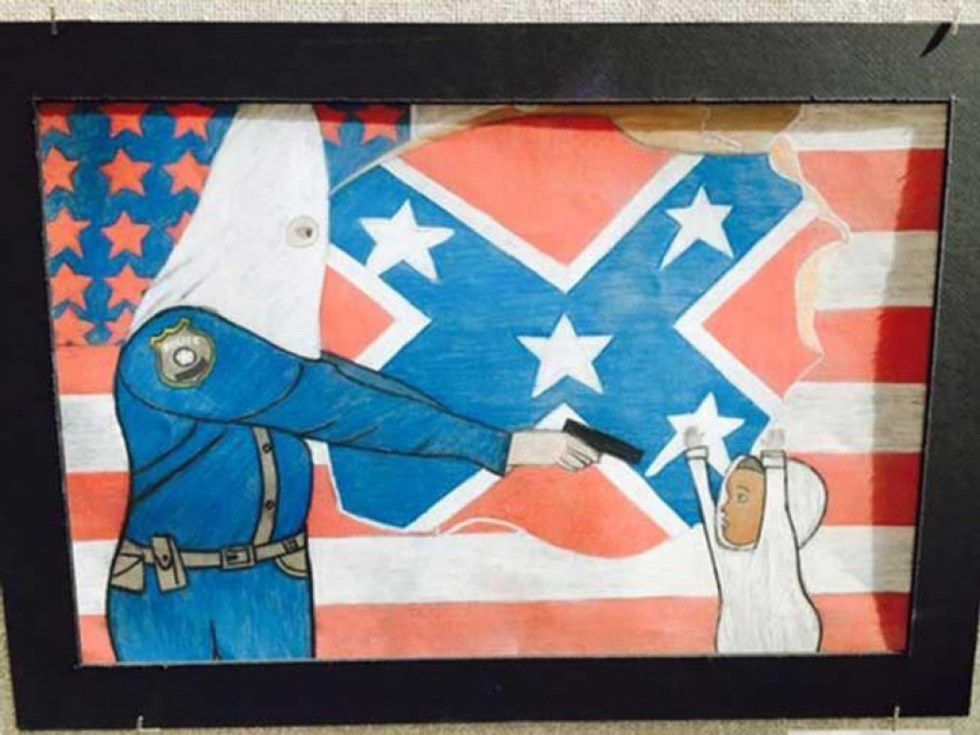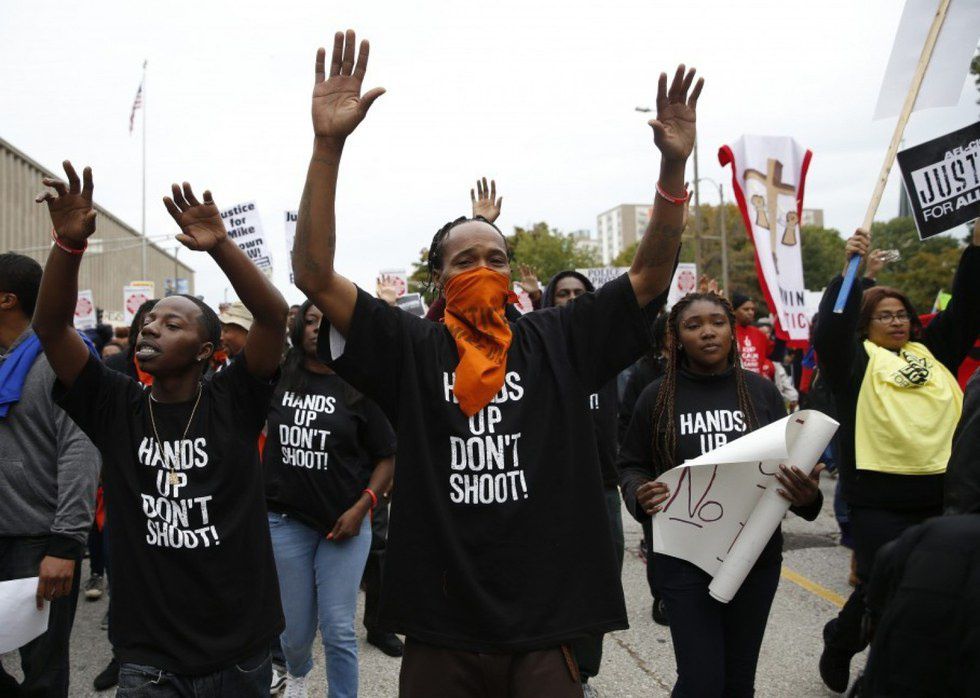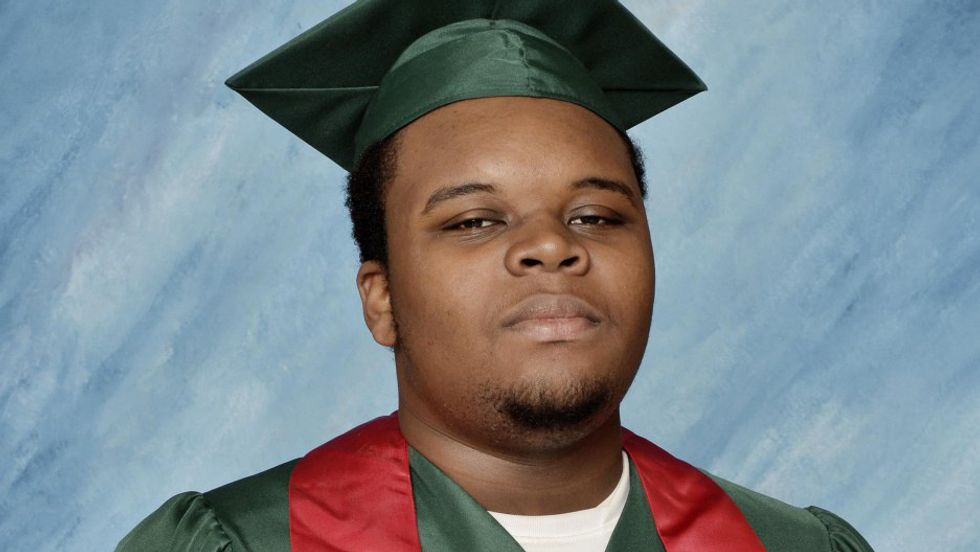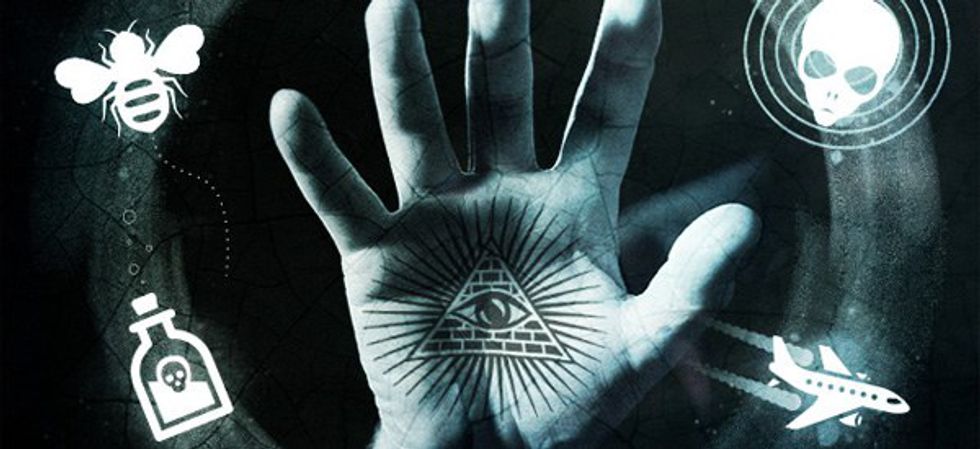Racism still exists.
A bombshell, I know. However, when criticizing the Black Lives Matter movement we have to make sure to declare this obvious truth loudly and quite often because people seem to start assuming that you believe that racism doesn't exist anymore. Individuals of every race indeed still hold racist beliefs all around the world. This is not being called into question, and this is an undeniable fact.
However, this doesn't mean that racism is the cause for every bad thing that happens in America. It's not always the cause for being pulled over "for no reason"... even as a white man, I've been pulled over many times "for no reason" and searched "for no reason." I suspect the time of the day, my appearance, where I was driving, and perhaps my socioeconomic status had something to do with it. It's not fair, but I stayed calm and have survived my numerous encounters with black and white police officers.
In one particular instance, it was really cold and they asked me to get out of the car "for no reason," and I had a nice warm jacket on and stuck my hands in the pockets. They stiffened up and requested that I not stick my hands in my pockets. I suspect that had I done so in a manner that they saw as threatening, and if it was not cold outside, they very well could have shot me. These are, of course, my own anecdotal, subjective experiences, and many people have their own stories to tell. However, these anecdotal experiences are not the truth for society as a whole; it only represents a small slice of reality.
This is true for any individual's personal story. Each of our subjective experiences are only a tiny part of the whole, and to get a fuller picture, you must collect a larger sample size of experiences and analyze them all together. This is what statistical analysis attempts to do. Many will dismiss statistics that disagree with their point of view as being propaganda perpetrated by "them," but there's no way to convince someone who believes such nonsense, so I won't attempt to.
Had I believed the cops that pulled me over only did so because of the color of my skin, that would be me putting forward a theory. Now, to prove a theory, one must provide evidence that supports the assertion. Unfortunately, I would have trouble providing evidence for this assertion because racism is often not explicitly stated, but implied in patterns of behavior. If a police officer is performing their job and has not plainly said, "I pulled you over because I believe that white people are an inferior race," I cannot provide evidence of their racism. If I continued to believe that these cops were pulling me over simply because of my race and that it was a system-wide effort throughout the entire United States designed to oppress me—I have now made several leaps in logic and have formulated a conspiracy theory.
America loves conspiracy theories; Infowars has built a very successful business on the back of conspiratorial thinking. One recent race-related conspiracy theory that was especially obvious was the one that purported Sandra Bland was already dead in her mug shot picture. Of course this specific claim was quickly debunked, but nonetheless, people kept believing it. Many people to this day still believe that the police killed Sandra Bland and covered it up as a suicide, despite all the evidence to the contrary. Conspiracy theories have been around for some time now, but social media is helping the conspiratorial-minded find other like minded individuals and create social echo chambers where none of their ideas or theories are ever challenged.
When discussing the Black Lives Matter movement, we have to realize that it is comprised of people of varying ideologies, beliefs, races and religious affiliations. Generally speaking, however, most lean to the left politically. There are people who believe that Black Lives Matter is simply a protest against police brutality, and there are some people who treat it as a black supremacy movement. I won't get into whether the movement is helping us progress on race issues; instead, I want to focus on a specific belief that seems to be widely adopted in some variation throughout the movement. The most extreme and specific variation is this: The United States is a white supremacist nation whose police systematically target and kill black people simply because of the color of their skin. This takes many variations and often chooses to be more vague, such as simply stating that police shootings of black people are a result of "systemic racism." Keep in mind that the implication is always that cops are killing black people intentionally, just because of the color of their skin, no matter the variation. From here on out, we are going to explore this theory in great depth. But first, a little reminder...
Now, I think it's useful that we clearly define our words here. Racism is the belief that a race is superior or inferior to another based only on skin color alone. However, there's a modern redefinition of racism that is floating around that states "racism=power+prejudice." This is, in fact, not the definition of racism, but the definition of systematic oppression. Racism can be the driving variable for systematic oppression, but systematic oppression can also occur based on other identity traits, such as gender, religion, or socioeconomic status. You must not conflate these two separate definitions as being the same thing; otherwise, you begin to make no sense when using these words interchangeably.
We also must pick apart what constitutes a phenomenon being "systematic." When people say systematic, what does this mean? This means that most of or the entire system is involved, doesn't it? Now, when we are talking specifically about systematic racism, and more specifically, this theory that the United States is a white supremacist nation whose police systematically target and kill black people simply because of the color of their skin, does this not mean that all white people participate in this system either implicitly or explicitly? I won't focus on that detail as there's no real way to prove "implicit racism," and instead we'll focus on the police population itself and the numbers of police shootings as an example of "explicit racism."
One of the better data aggregates for police shootings is found here. It also has a useful feature that allows us to filter criteria describing the individual shootings such as the race of the victim, or whether they were armed or not. A lot of people believe that if someone was unarmed then that means that they pose no threat to a police officer, and this would be the determining factor for an unjust shooting. Filtering for black and unarmed, we get 38 people who were killed in 2015, out of a total of 991 police shootings. This site also has another feature that allows us to filter for "attack in progress," which means the one who is shot was also on the attack. This is an important distinction that I feel we should explore a little.
As the case of Michael Brown showed, we have to realize a very important fact: "unarmed" doesn't necessarily mean that someone doesn't pose a lethal threat. Humans can easily kill with their bare hands. All the evidence was revealed to show that he, in fact, attempted to wrestle away the police officer's gun. Michael Brown, who was indeed unarmed, tried to arm himself with the officer's gun, failed, and then attempted to attack the officer again when the officer moved to arrest him. Michael Brown was then shot multiple times and died from his injuries. The hands-up, don't shoot narrative was proven to be false through forensic evidence provided by multiple autopsies, yet the lie that he died begging for his life while on his knees persists as truth today.
Let's continue analyzing the police shooting data. If we filter for the "attack in progress" criteria, the number drops to 19 people shot and killed by police in 2015. Upon doing simple arithmetic, we arrive at 3.8% who are black, unarmed and killed by police officers in 2015, or 2% if we use also include the criteria that there was no attack in progress. It's estimated that there are 900,000 sworn police officers in the United States right now, so if we have a total of 991 shootings in a year, that means that .1% of officers kill someone every year. If we assume all 38 unarmed black people shot every year as being shot only by one police officer, who also, according to the theory we're discussing, are racists hell bent on perpetuating white supremacy systematically here in America... we arrive at .0042% of the police force fitting into this conspiracy's criteria yearly.
Is .0042% of the police force nationwide a systematic problem, or is this perhaps individuals with racist beliefs? Shouldn't this number be higher if the police are part of a network of white supremacists working to oppress and kill black people? Perhaps these numbers have been falsified by "them"? If not, what percentage would be large enough to constitute the definition of "systematic"? 75%? 50%? 10%? There doesn't seem to be much evidence that supports this theory that the United States is a white supremacist nation whose police systematically target and kill black people simply because of the color of their skin. Even after we account for the population differences between groups, we must also consider the rates of crime committed by those groups, and adjust accordingly. Once you do this, we find that police shoot and kill people proportionally in accordance with the rates of violent crime committed in relation to their racial group. Regardless of all this, the numbers of shootings that fit into these specific criteria are still minuscule.
This very specific theory we've been discussing, that the United States is a white supremacist nation whose police systematically target and kill black people simply because of the color of their skin, does not seem to be supported by the data as far as I can tell. If the data doesn't support your theory, and you still believe the theory, then what is your belief based on?
It's easy to feel comfortable with this belief when it feels like so many believe it, but also keep in mind that people still believe the Earth is flat, 77% of Americans believe in angels, and 29% of Americans think that Bigfoot is real. My advice for people who believe in such theories is relatively simple. Follow the scientific method, don't get too comfortable with your beliefs, always question, and try and wait for evidence before forming an opinion.
Another thing to consider: if this theory is actually true, then what can actually be done? Doesn't this mean that there's no hope for black Americans? I'd like for my fellow Americans to have hope, and hearing them profess such beliefs depresses me. This presents such a bleak view of reality that it surely must have a profound negative effect on someone's outlook on life. This is my attempt to convince you that things aren't that bad and that America overwhelmingly likes you just fine, and that you are an integral part of America. We have our share of problems but I think that things have been getting better and better. The data seems to back me up on that too.




























